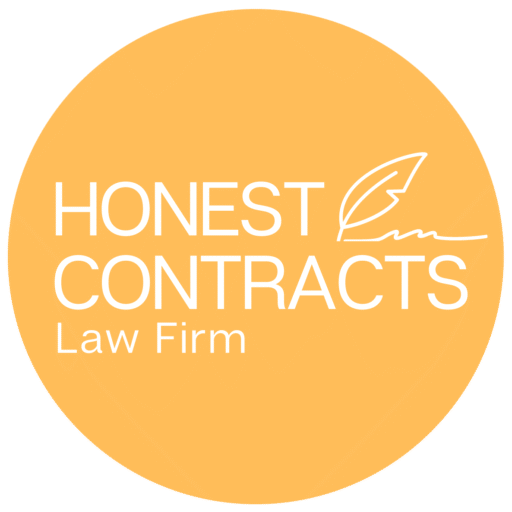Do I need a separate business bank account?
June 22, 2025
By Nadia Cabrera-Mazzeo, Esq.
Short Answer: Generally, yes.

When to get a business bank account and how to do it
Technically, there is no legal requirement to have a dedicated bank account for your business. The IRS doesn’t really care where your money is as long as you are reporting things accurately come tax time.
However, having a dedicated bank account for a business is almost always the best thing to do. This has less to do with the law and everything to do with liability protection and maximizing tax deductions.
First, let’s talk about sole proprietors
In a sole proprietorship, there is no legal difference between the business and the business owner. A dedicated business bank account won’t provide any liability protection for a sole proprietor, who is always personally responsible for business debts. So why should a sole proprietor have a separate business bank account?
For one, you as the owner will get into the habit of keeping personal and business finances separate, which is absolutely essential if you decide to form an LLC or corporation later on. Second, keeping business money separate from personal funds will make it easier to keep organized books for the business and, in turn, get as many tax deductions as possible. Comingling personal and business money could mean missed tax deductions because it might be difficult to tell apart some of the business expenses from personal ones.
For LLCs and corporations, a business bank account is a MUST
If you want to get the benefit of your company’s liability protection, you need to keep personal and business finances separate. Again, this is not a legal requirement, so you won’t go to jail or pay a fine for comingling funds, but the consequences could still be severe in other ways.
One of the main points of forming an LLC or corporation is to protect you from having to pay out of pocket for the debts of the business. This is the “corporate shield” or “corporate veil” and it’s not foolproof. The corporate veil can be “pierced” by creditors of the business if the business owner doesn’t follow proper practices to keep their liability shield strong. Only a court can allow a creditor to pierce the corporate veil and dip into the business owner’s personal funds. There are
many factors involved, but comingling personal and business funds makes things a lot easier to hold a business owner personally responsible for business debts.
When you mix personal and business finances and use business money to pay for personal expenses, you are showing that you do not respect the legal independence of the business entity and its status as completely separate from you as the owner. In that case, the liability shield of your company is pretty weak and will be much easier to pierce if it comes down to it.
It’s important to note that if you are comingling funds in favor of the business, meaning that you use personal money to pay for business expenses or mix personal money in an account that is only used for business, then the court won’t hold that against you. Comingling is more of a problem when you use the business for personal ends and to avoid liability, rather than for a valid business purpose.
If you want to get the benefit of your company’s liability protection, you need to keep personal and business finances separate. Again, this is not a legal requirement, so you won’t go to jail or pay a fine for comingling funds, but the consequences could still be severe in other ways.
One of the main points of forming an LLC or corporation is to protect you from having to pay out of pocket for the debts of the business. This is the “corporate shield” or “corporate veil” and it’s not foolproof. The corporate veil can be “pierced” by creditors of the business if the business owner doesn’t follow proper practices to keep their liability shield strong. Only a court can allow a creditor to pierce the corporate veil and dip into the business owner’s personal funds. There are
many factors involved, but comingling personal and business funds makes things a lot easier to hold a business owner personally responsible for business debts.
When you mix personal and business finances and use business money to pay for personal expenses, you are showing that you do not respect the legal independence of the business entity and its status as completely separate from you as the owner. In that case, the liability shield of your company is pretty weak and will be much easier to pierce if it comes down to it.
It’s important to note that if you are comingling funds in favor of the business, meaning that you use personal money to pay for business expenses or mix personal money in an account that is only used for business, then the court won’t hold that against you. Comingling is more of a problem when you use the business for personal ends and to avoid liability, rather than for a valid business purpose.
What you need to open a business bank account
Different banks have different requirements for opening a business account, but it’s generally easy to do. A bank in New Mexico may ask to see your Articles of Incorporation/ Organization
(the formation papers that you filed with the state to create your LLC or corporation), Operating Agreement/ Bylaws, and EIN.
Keep in mind that having an operating agreement is not legally required for LLCs in New Mexico, so you might not have one. It’s generally good practice and highly recommended that you have an operating agreement for your LLC and you may need one to open a bank account for your LLC.
Sometimes the bank requires a copy of the Articles of Incorporation/ Organization with the little stamp at the top that proves they were actually filed with the state and the date when the filing happened. An unstamped copy of your Articles may not be enough. The stamped articles should be emailed to you when you create the LLC or corporation or you can find them through the Secretary of State’s business portal.
Honest Contracts can help you get everything you need to open a business bank account including the Articles, operating agreement, and EIN.

Law office of Nadia Cabrera-Mazzeo, Esq.
Small business and contracts lawyer
Based in Taos, serving clients throughout New Mexico
505 427 2025
nadia@honestcontracts.com
The information on this website is not legal advice and does not create an attorney-client relationship. The rates and fees listed on this website may not be the most up to date.
